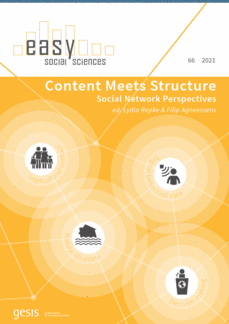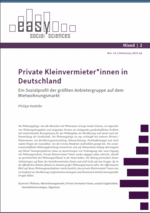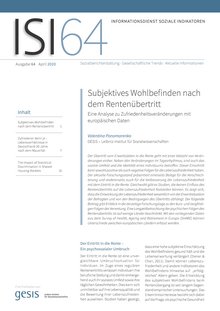| ISI Nr. 63, Dezember 2019 (1.18 MB) | Inhaltsverzeichnis ISI Heft Nr. 63 |
| ISI Nr. 62, Juli 2019 (1.05 MB) | Inhaltsverzeichnis ISI Heft Nr. 62 |
| ISI Nr. 61, Januar 2019 (2.97 MB) | Inhaltsverzeichnis ISI Heft Nr. 61 |
| ISI Nr. 60 Sonderausgabe, April 2018 (1.10 MB) | Inhaltsverzeichnis ISI Heft Nr. 60 Sonderausgabe |
| ISI Nr. 59, März 2018 (786 kB) | Inhaltsverzeichnis ISI Heft Nr. 59 |
| ISI Nr. 58, August 2017 (0.91 MB) | Inhaltsverzeichnis ISI Heft Nr. 58 |
| ISI Nr. 57, April 2017 (820 kB) | Inhaltsverzeichnis ISI Heft Nr. 57 |
| ISI Nr. 56, August 2016 (198 kB) | Inhaltsverzeichnis ISI Heft Nr. 56 |
| ISI Nr. 55, Februar 2016 (1.11 MB) | Inhaltsverzeichnis ISI Heft Nr. 55 |
| ISI Nr. 54, August 2015 (1.10 MB) | Inhaltsverzeichnis ISI Heft Nr. 54 |
| ISI Nr. 53, April 2015 (2.52 MB) | Inhaltsverzeichnis ISI Heft Nr. 53 |
| ISI Nr. 52, Juli 2014 (1.60 MB) | Inhaltsverzeichnis ISI Heft Nr. 52 |
| ISI Nr. 51, Februar 2014 (1.02 MB) | Inhaltsverzeichnis ISI Heft Nr. 51 |
| ISI Sonderausgabe, November 2013 (4.87 MB) | Inhaltsverzeichnis ISI Sonderausgabe |
| ISI Nr. 50, August 2013 (0.92 MB) | Inhaltsverzeichnis ISI Heft Nr. 50 |
| ISI Nr. 49, Februar 2013 (817 kB) | Inhaltsverzeichnis ISI Heft Nr. 49 |
| ISI Nr. 48, Juli 2012 (645 kB) | Inhaltsverzeichnis ISI Heft Nr. 48 |
| ISI Nr. 47, Januar 2012 (1.08 MB) | Inhaltsverzeichnis ISI Heft Nr. 47 |
| ISI Nr. 46, Juli 2011 (652 kB) | Inhaltsverzeichnis ISI Heft Nr. 46 |
| ISI Nr. 45, Februar 2011 (776 kB) | Inhaltsverzeichnis ISI Heft Nr. 45 |
| ISI Nr. 44, August 2010 (1.52 MB) | Inhaltsverzeichnis ISI Heft Nr. 44 |
| ISI Nr. 43, Januar 2010 (859 kB) | Inhaltsverzeichnis ISI Heft Nr. 43 |
| ISI Nr. 42, Juli 2009 (368 kB) | Inhaltsverzeichnis ISI Heft Nr. 42 |
| ISI Nr. 41, Januar 2009 (368 kB) | Inhaltsverzeichnis ISI Heft Nr. 41 |
| ISI Nr. 40, Juli 2008 (503 kB) | Inhaltsverzeichnis ISI Heft Nr. 40 |
| ISI Nr. 39, Januar 2008 (692 kB) | Inhaltsverzeichnis ISI Heft Nr. 39 |
| ISI Nr. 38, Juli 2007 (471 kB) | Inhaltsverzeichnis ISI Heft Nr. 38 |
| ISI Nr. 37, Januar 2007 (384 kB) | Inhaltsverzeichnis ISI Heft Nr. 37 |
| ISI Nr. 36, Juli 2006 (371 kB) | Inhaltsverzeichnis ISI Heft Nr. 36 |
| ISI Nr. 35, Januar 2006 (151 kB) | Inhaltsverzeichnis ISI Heft Nr. 35 |
| ISI Nr. 34, Juli 2005 (203 kB) | Inhaltsverzeichnis ISI Heft Nr. 34 |
| ISI Nr. 33, Januar 2005 (204 kB) | Inhaltsverzeichnis ISI Heft Nr. 33 |
| ISI Nr. 32, Juli 2004 (188 kB) | Inhaltsverzeichnis ISI Heft Nr. 32 |
| ISI Nr. 31, Januar 2004 (206 kB) | Inhaltsverzeichnis ISI Heft Nr. 31 |
| ISI Nr. 30, Juli 2003 (258 kB) | Inhaltsverzeichnis ISI Heft Nr. 30 |
| ISI Nr. 29, Januar 2003 (122 kB) | Inhaltsverzeichnis ISI Heft Nr. 29 |
| ISI Nr. 28, Juli 2002 (157 kB) | Inhaltsverzeichnis ISI Heft Nr. 28 |
| ISI Nr. 27, Januar 2002 (169 kB) | Inhaltsverzeichnis ISI Heft Nr. 27 |
| ISI Nr. 26, Juli 2001 (172 kB) | Inhaltsverzeichnis ISI Heft Nr. 26 |
| ISI Nr. 25, Januar 2001 (236 kB) | Inhaltsverzeichnis ISI Heft Nr. 25 |
| ISI Nr. 24, Juli 2000 (261 kB) | Inhaltsverzeichnis ISI Heft Nr. 24 |
| ISI Nr. 23, Januar 2000 (170 kB) | Inhaltsverzeichnis ISI Heft Nr. 23 |
| ISI Nr. 22, Juli 1999 (237 kB) | Inhaltsverzeichnis ISI Heft Nr. 22 |
| ISI Nr. 21, Januar 1999 (550 kB) | Inhaltsverzeichnis ISI Heft Nr. 21 |
| ISI Nr. 20, Juli 1998 (279 kB) | Inhaltsverzeichnis ISI Heft Nr. 20 |
| ISI Nr. 19, Januar 1998 (196 kB) | Inhaltsverzeichnis ISI Heft Nr. 19 |
| ISI Nr. 18, Juli 1997 (185 kB) | Inhaltsverzeichnis ISI Heft Nr. 18 |
| ISI Nr. 17, Januar 1997 (193 kB) | Inhaltsverzeichnis ISI Heft Nr. 17 |
| ISI Nr. 16, Juli 1996 (4.24 MB) | Inhaltsverzeichnis ISI Heft Nr. 16 |
| ISI Nr. 15, Januar 1996 (4.63 MB) | Inhaltsverzeichnis ISI Heft Nr. 15 |
| ISI Nr. 14, Juli 1995 (4.47 MB) | Inhaltsverzeichnis ISI Heft Nr. 14 |
| ISI Nr. 13, Januar 1995 (3.58 MB) | Inhaltsverzeichnis ISI Heft Nr. 13 |
| ISI Nr. 12, Juli 1994 (4.17 MB) | Inhaltsverzeichnis ISI Heft Nr. 12 |
| ISI Nr. 11, Januar 1994 (5.08 MB) | Inhaltsverzeichnis ISI Heft Nr. 11 |
| ISI Nr. 10, Juli 1993 (3.96 MB) | Inhaltsverzeichnis ISI Heft Nr. 10 |
| ISI Nr. 9, Januar 1993 (4.05 MB) | Inhaltsverzeichnis ISI Heft Nr. 9 |
| ISI Nr. 8, Juli 1992 (4.26 MB) | Inhaltsverzeichnis ISI Heft Nr. 8 |
| ISI Nr. 7, Januar 1992 (4.40 MB) | Inhaltsverzeichnis ISI Heft Nr. 7 |
| ISI Nr. 6, Juli 1991 (4.34 MB) | Inhaltsverzeichnis ISI Heft Nr. 6 |
| ISI Nr. 5, Januar 1991 (4.17 MB) | Inhaltsverzeichnis ISI Heft Nr. 5 |
| ISI Nr. 4, Juli 1990 (3.78 MB) | Inhaltsverzeichnis ISI Heft Nr. 4 |
| ISI Nr. 3, Januar 1990 (4.26 MB) | Inhaltsverzeichnis ISI Heft Nr. 3 |
| ISI Nr. 2, Juli 1989 (4.17 MB) | Inhaltsverzeichnis ISI Heft Nr. 2 |
| ISI Nr. 1, Januar 1989 (2.95 MB) | Inhaltsverzeichnis ISI Heft Nr. 1 |






